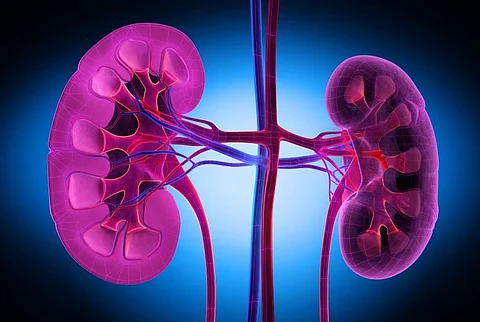MONDAY, Dec. 18, 2023 (HealthDay News) -- An aldosterone synthase inhibitor, BI 690517, reduces albuminuria, according to a study published online Dec. 15 in The Lancet.
Katherine R. Tuttle, M.D., from the University of Washington in Seattle, and colleagues enrolled adults with an estimated glomerular filtration rate ≥30 and <90 mL/min/1.73 m2, urine albumin:creatinine ratio (UACR) ≥200 and <5,000 mg/g, and serum potassium ≤4.8 mmol/L, taking an angiotensin-converting enzyme inhibitor or angiotensin receptor blocker. Patients were randomly assigned to eight weeks of empagliflozin or placebo run-in. Participants were then re-randomly assigned to once-daily BI 690517 at a dose of 3, 10, or 20 mg or placebo for 14 weeks. The change in UACR from the second randomization to the end of treatment was the primary end point.
Overall, 586 of the 714 run-in participants were randomly assigned to BI 690517 or placebo. The researchers found that the percent change in UACR was −3, −22, −39, and −37 percent with placebo and BI 690517 3-, 10-, and 20-mg monotherapy, respectively. When added to empagliflozin, BI 690517 produced similar UACR reductions. In 10, 15, and 18 percent of participants receiving BI 690517 at doses of 3, 10, and 20 mg, respectively, and in 6 percent of those receiving placebo, with or without empagliflozin, investigator-reported hyperkalemia occurred.
"Using BI 690517 along with empagliflozin may offer the potential for additive kidney protection, while mitigating hyperkalemia risk," the authors write.
Several authors disclosed ties to pharmaceutical companies, including Boehringer Ingelheim, which is developing BI 690517 and funded the study.
Abstract/Full Text (subscription or payment may be required)
Editorial (subscription or payment may be required)


